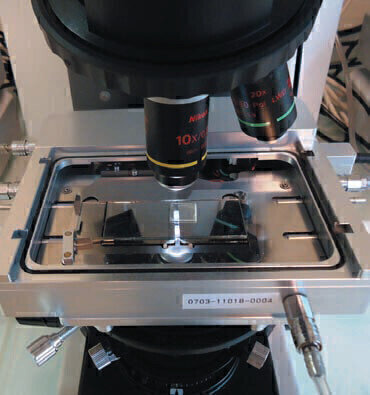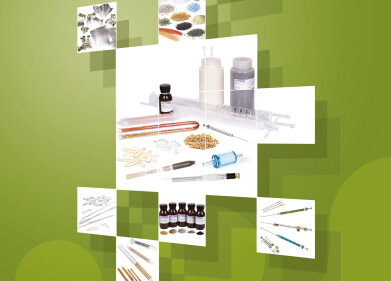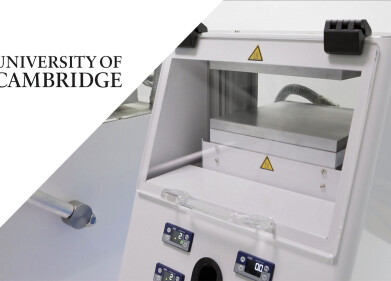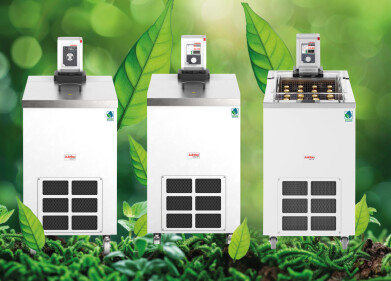Laboratory Products
Temperature Controlled Stage used to Crystallisation Processes in Opto-Electronic Thin Films
Feb 07 2012
The Laboratory of Polymer Chemistry at the Université Libre de Bruxelles is focused on research into ‘small molecules’, namely, liquid crystalline semiconductors for organic electronics application.
Professor Yves Henri Geerts and his colleagues in Bruxelles have undertaken a study of single crystal thin films of terthiophene, the building block for the organic semi-conductor polythiophene, by directional crystallization by means of a thermal gradient using the Linkam GS350 stage. The background to this work is to better understand how molecular structure and supramolecular organisation affects optoelectronic properties. These can also be affected by the method of fabrication, therefore determining a method to control deposition and crystallisation is important. As part of his research, Professor Geerts used polarised optical microscopy (POM) and X-ray diffraction to characterise the shape, size, and orientation (in and out of the plane of the substrate) of the crystals produced by the thermal gradient technique. He found temperature gradients could potentially be used to control crystal growth and these conditions induce a preferential fast growth direction perpendicular to the gradient direction. In addition it is found that nucleation and growth can be decoupled for OSC crystallising from the melt in a temperature gradient and that these conditions lead to the generation of highly textured thin films with uniaxial in-plane orientation of crystallites.
The Linkam GS350 was chosen for this work for its ability to accurately programme temperature gradients across the sample. It has two heating elements that are perfectly aligned to ensure uniform thermal contact between the temperature-controlled surface and the sample media. The heating elements are separated by a 2.5mm gap and can be controlled to 0.1°C from -196 to 350°C allowing large, precise temperature gradients to be set up.
The accompanying T95-Linksys controller and Linksys 32 software enables the precision stepper motor to control the position and the speed of sample movement between the two elements and can be used to determine speed of crystal growth and allow the crystallisation front to remain in the field of view. The stepper motor control also enables extremely fast heating or cooling by quickly transferring the sample from one element to the other.
Digital Edition
International Labmate 49.6 - Sept 2024
September 2024
Chromatography Articles - HPLC gradient validation using non-invasive flowmeters Mass Spectrometry & Spectroscopy Articles - From R&D to QC, making NMR accessible for everyone: Putting NMR...
View all digital editions
Events
Sep 11 2024 Bangkok, Thailand
Sep 11 2024 Bangkok, Thailand
Sep 11 2024 Singapore
Sep 18 2024 Lausanne, Switzerland
Sep 19 2024 Shanghai, China








.jpg)









